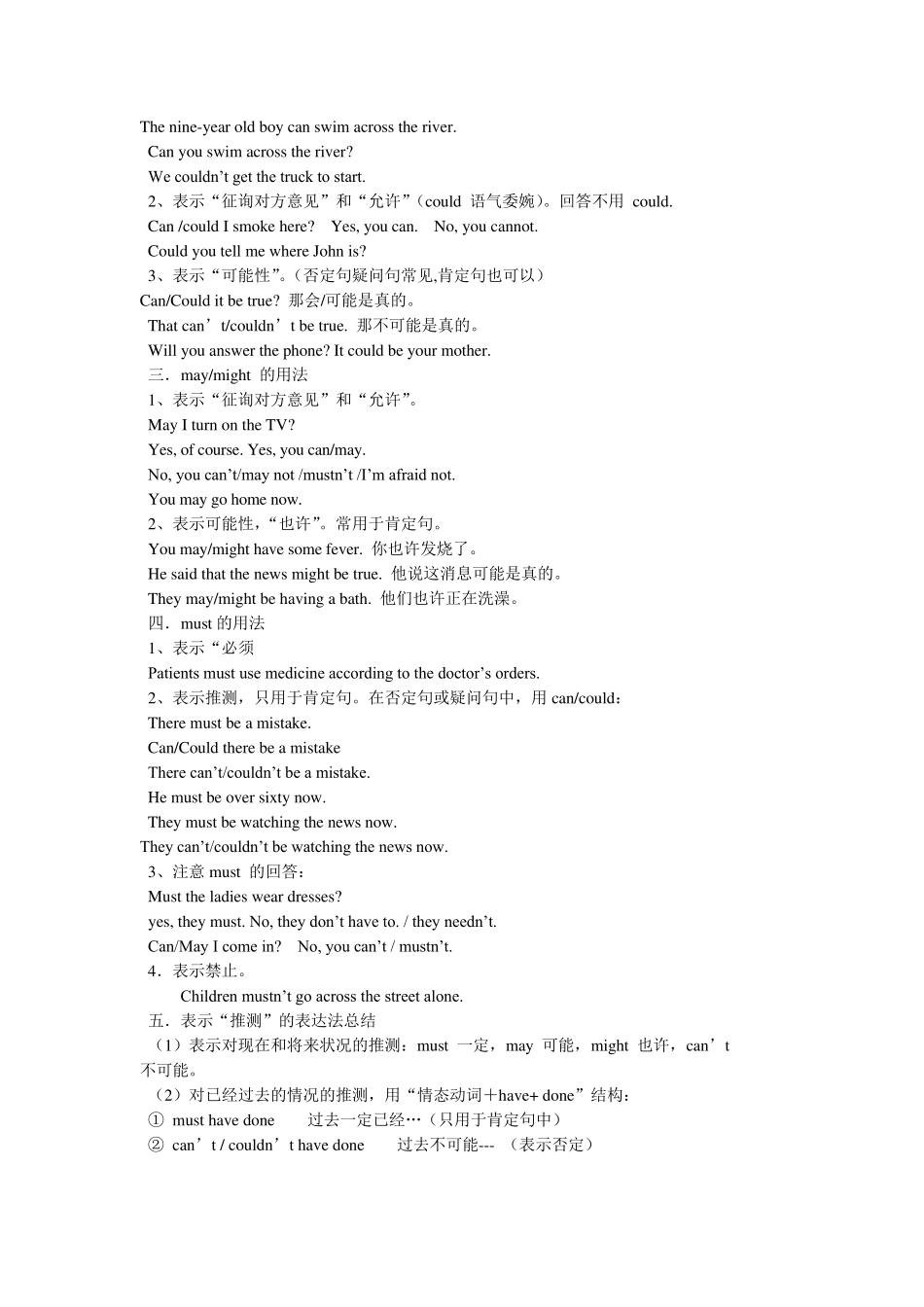would : 1. 表will 的过去,用于过去将来时 2. 表"意愿",乐意做某事 3. 虚拟语气 could: 1. 表can 的过去,表过去的能力 2 表请求(婉转语气) 3. 表猜测:可能是... 4. 虚拟语气 should: 1. 表shall 的过去,用于过去将来时,搭配第一人称 2. 表婉转的语气: 应该做... 3. 虚拟语气 might: 1. may的过去,表猜测:可能是 2. 表许可(婉转语气) may: 1. 表猜测: 可能是 2. 表许可 think of 想起, 想到; 没有think from 的用法 一. shall 和will 的用法 1、shall 用在第一、三人称,will 用于第二人称表示“征求意见”。 Shall I go now? Shall we invite her, too? Will you help me with the work? Shall the reporters wait outside or what? 2、shall 表示依据规定有义务去做。 Passengers shall not talk with the driver while the bus is moving. 3、shall 用于所有人称,表示说话人的许诺、威胁、警告、命令等。 You shall have an answer by tomorrow. If he’s good, he shall have a new watch for Christmas. If you children don’t do as I tell you, you shan’t go to the party. 4、would 可以表示过去的习惯(would 可表示反复发生的动作或某种倾向。used to 表示过去的习惯动作或状态,强调现在已不存在) He would come to see me on Sunday when he was here. The dog would lie there in the sun all afternoon. When we were children, we would go skating every winter. 5、will 可以表示“愿意”,而非将来: I will pay you for it. 我会付给你钱买下它的。 Go where you will. 到你愿意去的地方。 We’re going on a climbing trip. Come if you will. 6、will 可以表示倾向、习惯(总是会,老是等意思) Sometimes the cat will lie there all morning. Oil and water will not mix. This machine won’t work. 二、can/could 的用法 1、表示具备某种能力。 The nine-year old boy can swim across the river. Can you swim across the river? We couldn’t get the truck to start. 2、表示“征询对方意见”和“允许”(could 语气委婉)。回答不用 could. Can /could I sm...


